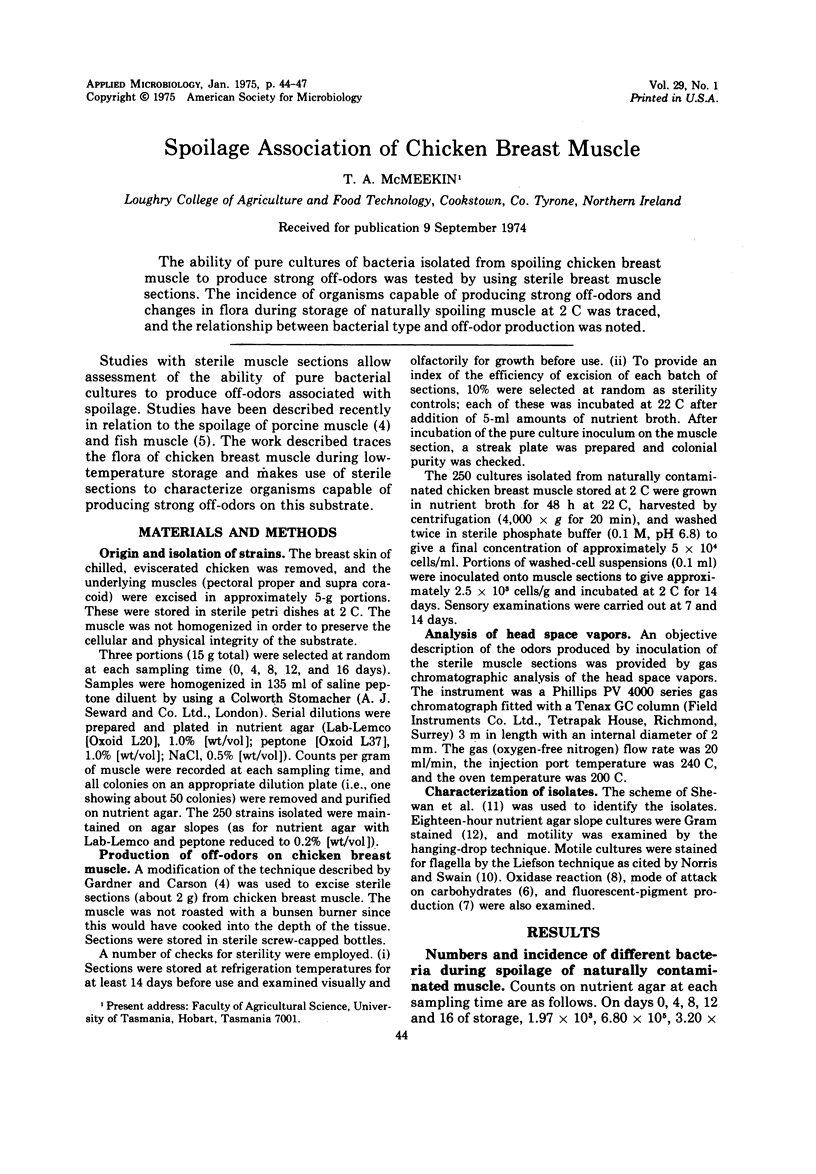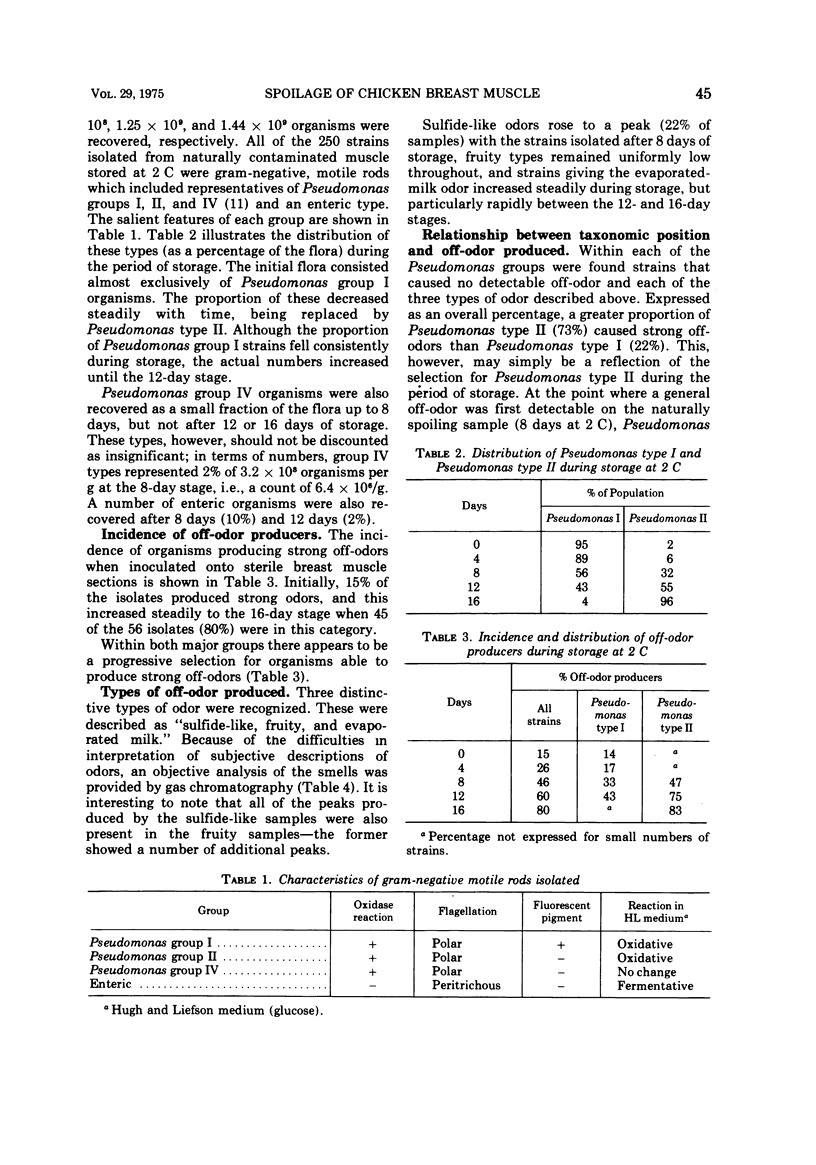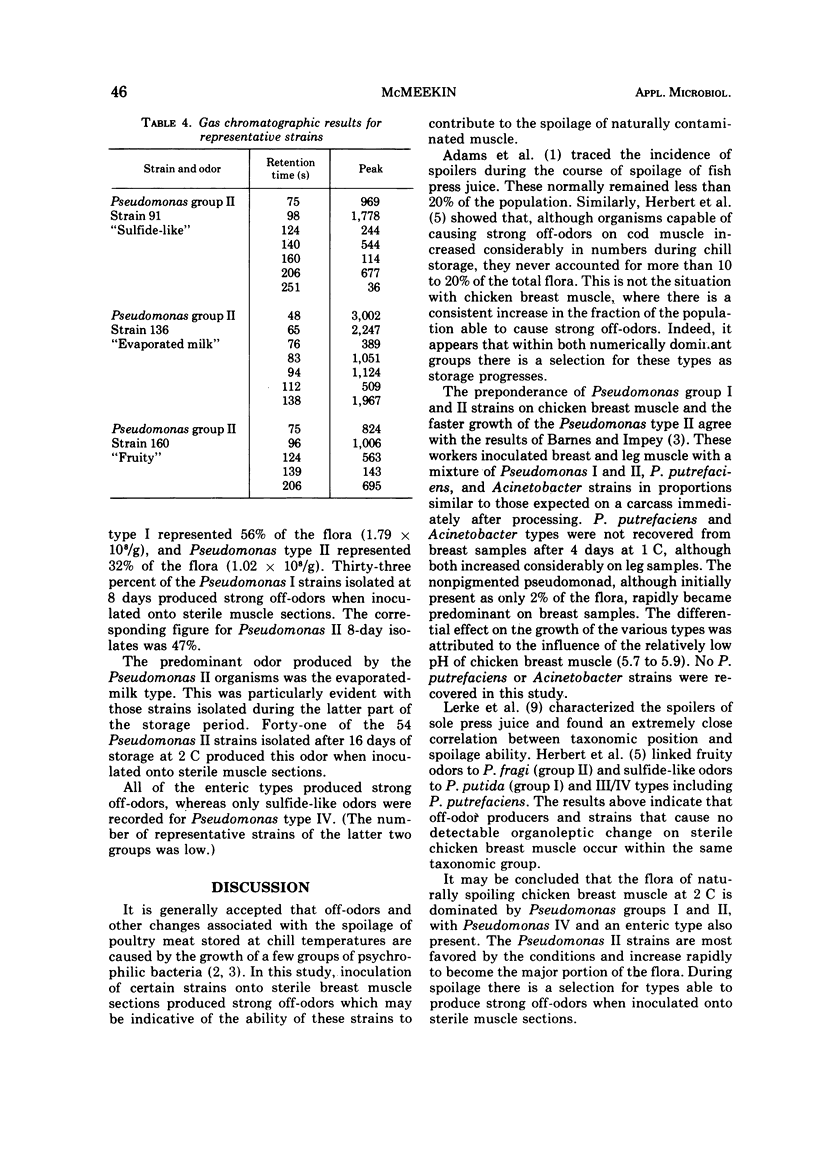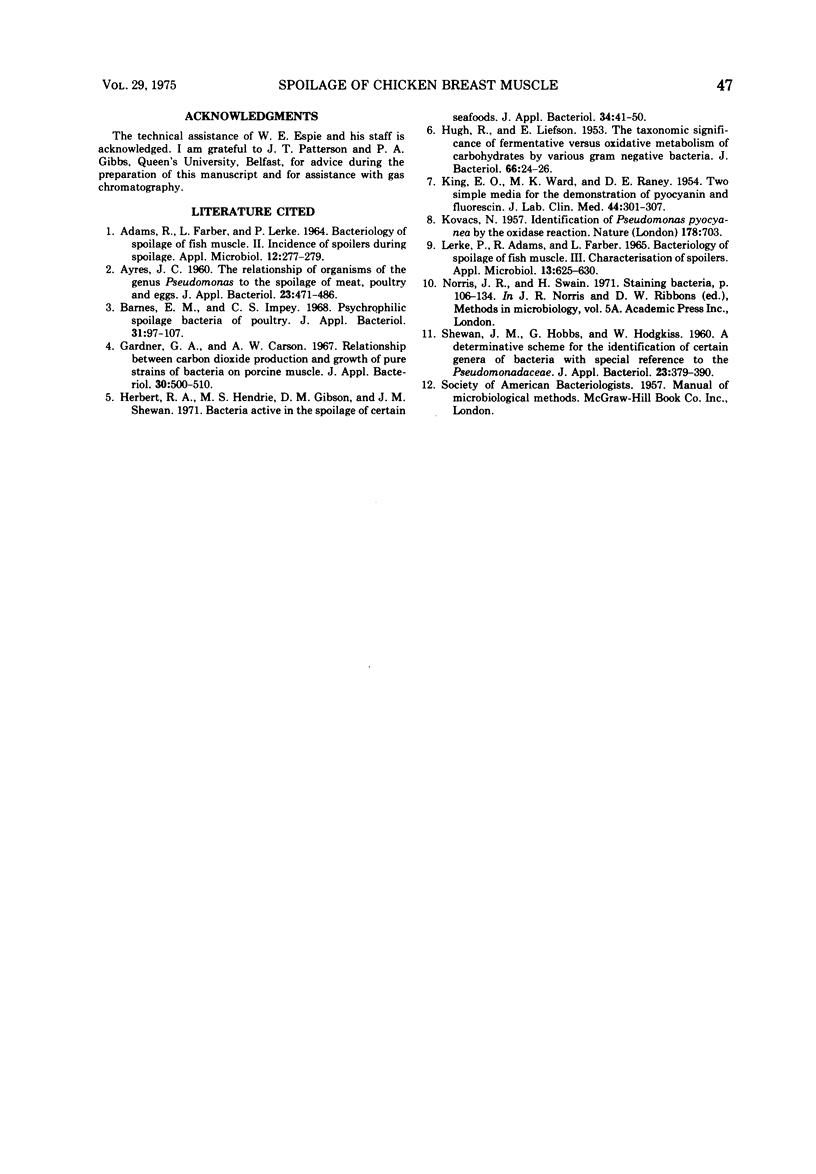Abstract
The ability of pure cultures of bacteria isolated from spoiling chicken breast muscle to produce strong off-odors was tested by using sterile breast muscle sections. The incidence of organisms capable of producing strong off-odors and changes in flora during storage of naturally spoiling muscle at 2 C was traced, and the relationship between bacterial type and off-odor production was noted.
Full text
PDF



Selected References
These references are in PubMed. This may not be the complete list of references from this article.
- ADAMS R., FARBER L., LERKE P. BACTERIOLOGY OF SPOILAGE OF FISH MUSCLE. II. INCIDENCE OF SPOILERS DURING SPOILAGE. Appl Microbiol. 1964 May;12:277–279. doi: 10.1128/am.12.3.277-279.1964. [DOI] [PMC free article] [PubMed] [Google Scholar]
- Barnes E. M., Impey C. S. Psychrophilic spoilage bacteria of poultry. J Appl Bacteriol. 1968 Mar;31(1):97–107. doi: 10.1111/j.1365-2672.1968.tb00345.x. [DOI] [PubMed] [Google Scholar]
- Gardner G. A., Carson A. W. Relationship between carbon dioxide production and growth of pure strains of bacteria on porcine muscle. J Appl Bacteriol. 1967 Dec;30(3):500–510. doi: 10.1111/j.1365-2672.1967.tb00329.x. [DOI] [PubMed] [Google Scholar]
- HUGH R., LEIFSON E. The taxonomic significance of fermentative versus oxidative metabolism of carbohydrates by various gram negative bacteria. J Bacteriol. 1953 Jul;66(1):24–26. doi: 10.1128/jb.66.1.24-26.1953. [DOI] [PMC free article] [PubMed] [Google Scholar]
- Herbert R. A., Hendrie M. S., Gibson D. M., Shewan J. M. Symposium on microbial changes in foods. Bacteria active in the spoilage of certain sea foods. J Appl Bacteriol. 1971 Mar;34(1):41–50. doi: 10.1111/j.1365-2672.1971.tb02267.x. [DOI] [PubMed] [Google Scholar]
- KING E. O., WARD M. K., RANEY D. E. Two simple media for the demonstration of pyocyanin and fluorescin. J Lab Clin Med. 1954 Aug;44(2):301–307. [PubMed] [Google Scholar]
- KOVACS N. Identification of Pseudomonas pyocyanea by the oxidase reaction. Nature. 1956 Sep 29;178(4535):703–703. doi: 10.1038/178703a0. [DOI] [PubMed] [Google Scholar]
- LERKE P., ADAMS R., FARBER L. BACTERIOLOGY OF SPOILAGE OF FISH MUSCLE. 3. CHARACTERIZATION OF SPOILERS. Appl Microbiol. 1965 Jul;13:625–630. doi: 10.1128/am.13.4.625-630.1965. [DOI] [PMC free article] [PubMed] [Google Scholar]



